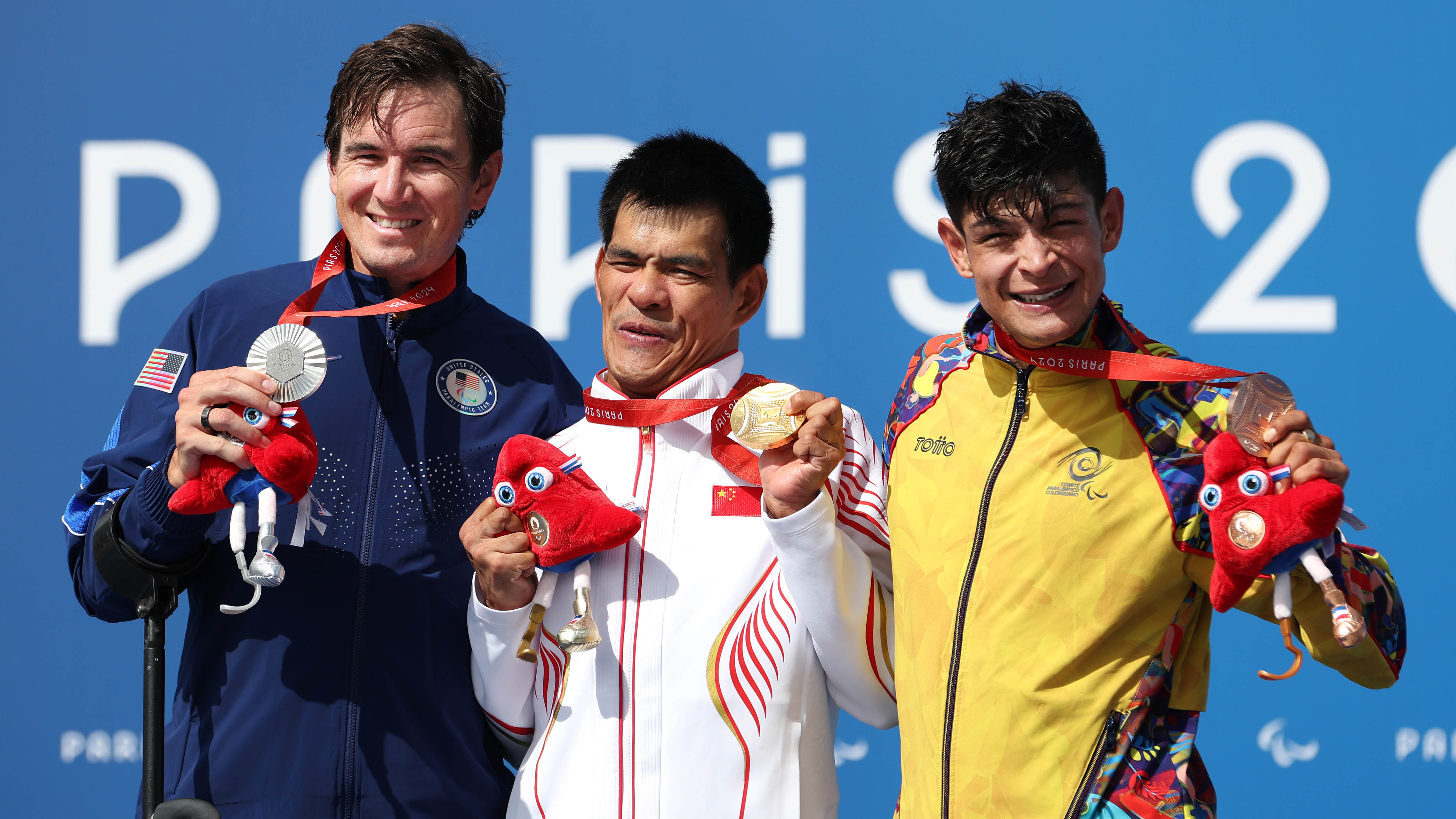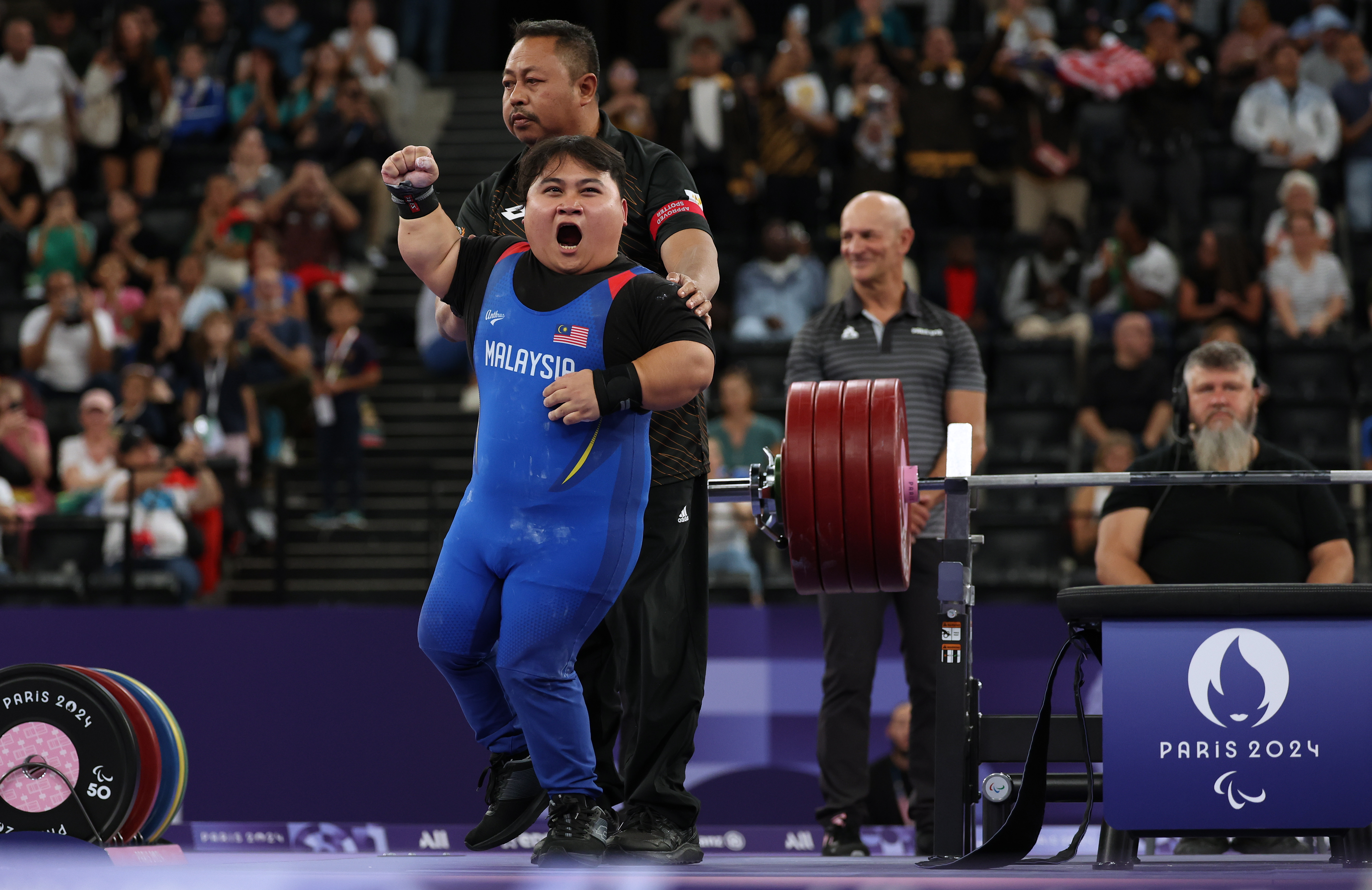Los Angeles, you’re next.
Paris raised the game for the Paralympics, with more than 4,000 athletes as well as 2.4 million tickets sold, which was second only to the London Games of 2012. Now the challenge for U.S. organizers is to top it with another breakout moment for para sports.
“We want to conquer America,” said Craig Spence, a spokesman for the International Paralympic Committee.
Retired Army Lt. Gen. Reynold Hoover, CEO of the organizing committee for the 2028 Los Angeles Olympics and Paralympics, is confident the Paralympics can do just that.
“We don’t have the Eiffel Tower, we don’t have the Grand Palais, but we’ve got the Coliseum and we’ve got the Rose Bowl and we’ve got SoFi (Stadium), and all these tremendous state-of-the-art venues,” he said in an interview Friday as the Paris Games wound down.
The Paralympic venues for Los Angeles haven’t been announced yet – ideally, they’ll be finalized by the end of 2024. Since LA received the bid in 2017, several venues such as Crypto.com Arena and SoFi Stadium have either been re-envisioned or built.
Get Tri-state area news delivered to your inbox.> Sign up for NBC New York's News Headlines newsletter.
With five new sports coming to the Olympics, and the addition of para climbing in the Paralympics, a record combined total of up to 15,000 athletes are expected to compete.
“We try to figure out what is the sport that is kind of new, engaging, emerging and can offer the Paralympians another avenue in which to show their intensity and commitment to sport,” Hoover said.
If the Paralympics are to take a jump in popularity in the United States, several areas are generally considered key to that success.
Television
As the Paris Games finished, the NFL kicked off and college football finished its second full week, dominating the U.S. sports market.
Chris Hammer, a para triathlon veteran who won his first gold medal in the PTS5 classification for athletes with mild impairment, wouldn’t be surprised if the attention in the U.S. landed elsewhere — he said he’s “guilty” of it, too.
“I love American football, that’s what I watch on TV,” he said. “We don’t embrace the niche sports as much as Europeans do, so I think that is a challenge that we need to overcome if we want to replicate the success of Paris.”
Since the London Games in 2012, Channel 4 in the United Kingdom has broadcast the Paralympics on live, linear television. France’s national broadcaster, France Télévisions, had near continuous coverage of the games, but while NBC and Peacock’s Olympic and Paralympic coverage has expanded, there is no guarantee Americans will pay for subscriptions when it’s behind a paywall.
Aaron Phipps, a veteran of Great Britain’s wheelchair rugby team, remembers U.S. athletes excited about being on TV back in 2012: “I was thinking ‘What are you talking about?’ For us, it’s just completely normalized.”
Olympic fatigue
With the Olympics and Paralympics, there’s several weeks of competition for people to pay attention and remain engaged. The Parisian crowds have done it, but can the Southern Californians?
Hoover said with new technology in the works to generate a more interactive experience, Olympic fatigue shouldn’t be an issue. Instead, he thinks fans will be “more excited” because Los Angeles will act as a “home field advantage” for the United States.
True stars
With access to Hollywood, Spence said the organizing committee has a chance to make an impact that extends outside Los Angeles — he expects a global cultural shift when it comes to making Paralympic athletes true pop culture stars.
Visibility isn’t a new issue. Scout Bassett, who competed in Rio de Janeiro and is on the athletes' commission for Los Angeles, thinks more work should be done together between Paralympians and Olympians to generate more awareness through already established stars.
“We are a country that celebrates winning, success, and until we start telling these stories and really giving these athletes the opportunities they deserve in that spotlight, that’s the only way we’re going to grow the Paralympics and change the perceptions about people with disabilities,” she said.
Seasoned Paralympians noted most up-and-coming athletes went years without knowing of para sports programs available to them. They say that must change to grow the games.
“My hope is that LA is gonna be this moment for so many people with disabilities to say, ‘Oh gosh, I could compete, there’s something I could do,’” said Chuck Aoki, a veteran of Team USA’s wheelchair rugby team.
Medal count
The U.S. once again dominated the Summer Olympics medals table in Paris but, in the Paralympics, China has been the leading force since 2004.
“I think we need to go back to the drawing board,” said Jessica Long, one of the most decorated Paralympic swimmers of all-time.
Long doesn’t think the U.S. reached its full potential in Paris and some Paralympians, who were a part of the three-year turnaround from Tokyo, have struggled.
“I think we need to really get on board, the whole U.S., just to showcase what we can do," she said.
For Matt Stutzman, the compound archer gold medalist, it’s a financial issue and athletes could be backed more by the U.S. Olympic and Paralympic Committee.
“(Money is) the stress – like you basically have to choose between Paralympic sport or supporting your family, and you always gotta pick your family,” Stutzman said.
Medalists from the United States do receive financial bonuses: $38,000 for gold, $23,000 for silver, $15,000 for bronze.
As for Los Angeles, Aoki said reaching the top of the medal table would be tough, but anything is possible.
“Because the reality is, you know, China’s a very large country. The United States is a large country. We have the ability to have athletes contesting every event,” he said. “We just don’t because people don’t know they have access to sport.”
Amanda Vogt is a student at the John Curley Center for Sports Journalism at Penn State.




